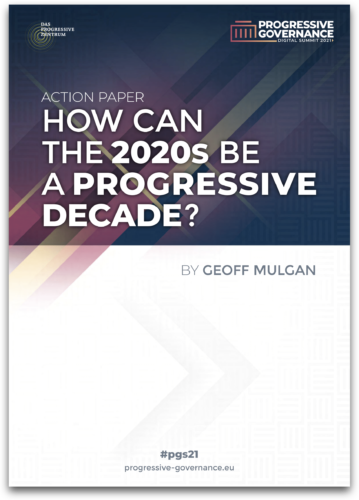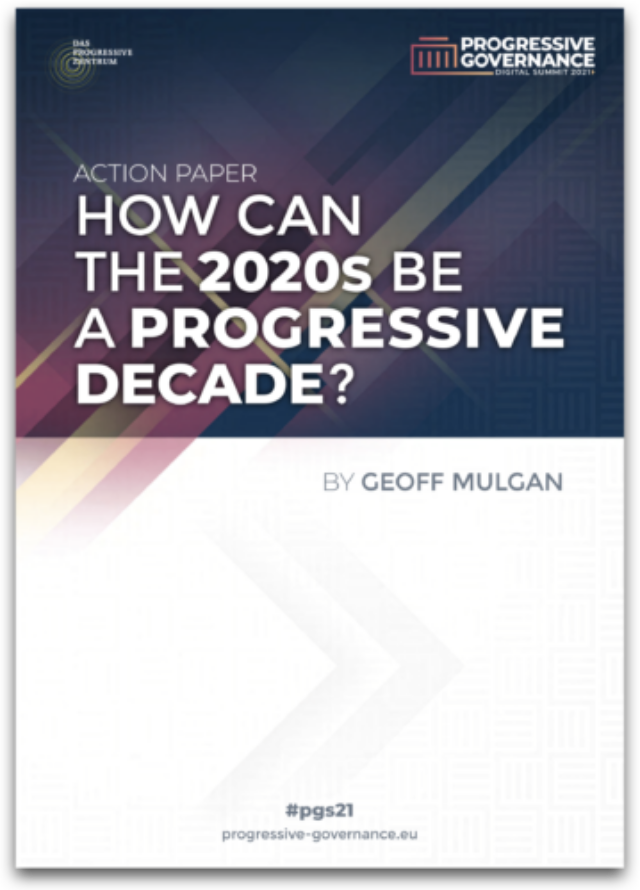Summary
Geoff Mulgan argues that progressive politics has to offer practical policies for the present, but also guidance for the more ambitious, longer-term transitions that are currently developing. Both approaches to politics are necessary and will play important roles in implementing progressive policy in the future.
In recent years progressives have been embattled. In many countries they have clung to a shrinking centre-ground – often defending globalisation despite its evident failings, uncertain how to respond to new patterns of inequality, struggling to address threatened feelings of belonging, and squeezed into a defence of past achievements against attacks rather than offering much vision of the future.

The result has been a narrowing of ambition and an emotional hollowing out that has left progressive parties cool, technocratic and unexciting and without either a compelling explanation of the present or a roadmap for the future.
So the future is open, not determined, and the COVID crisis should have made things easier. But there is no guarantee that left-of-centre parties will benefit.
This Action Paper suggests three different ways to respond:
- Renew the central idea of being progressive – the view that the best years lie ahead, not behind.
- Translate that into programmes that are ambitious and engaging (on jobs and lifetime learning, care services and housing, climate justice and democracy).
- Use these to grow broad coalitions; how to adopt a new philosophy of how to govern and how to rethink political style and culture in a social media era.
The central argument is that progressive politics has to offer both practical policies for the present, and a sense of the more ambitious, longer-term transitions that they are part of: both steps to be taken now and a picture of the journey of which they’re part.
Goeff Mulgan
Presentation at #PGS21
About the author
Sir Geoff Mulgan is Professor of Collective Intelligence, Public Policy & Social Innovation at University College London. He was CEO of Nesta, the UK’s innovation foundation from 2011-2019 and before he had roles in the UK government. Geoff Mulgan advises many governments around the world. Past books include ‘The Art of Public Strategy’, ‘Good and Bad Power’ and ‘Big Mind: how collective intelligence can change our world’ and ‘Social innovation’.
Author
Europe’s Man on the Moon Project
How Can the Centre-Left Reinvent Itself?
Progressives Against the Far-Right
Empowering Cities: The American Rescue Plan

Wir entwickeln und debattieren Ideen für den gesellschaftlichen Fortschritt – und bringen diejenigen zusammen, die sie in die Tat umsetzen. Unser Ziel als Think Tank: das Gelingen einer gerechten Transformation. ▸ Mehr erfahren



